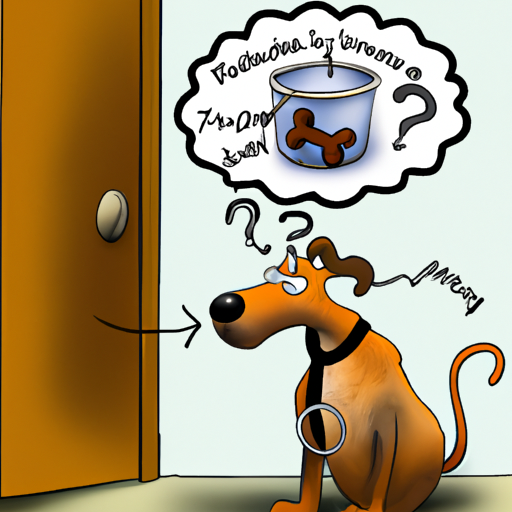As a caregiver, it’s essential for you to understand how and why dogs can find themselves in a pickle. This guide will help you navigate through these situations.
1. Physical Hazards
Just like children, dogs are inquisitive creatures. Their curiosity often leads them to explore spaces that might not necessarily be safe.
Some common physical hazards include:
- Small, cramped spaces
- Open windows
- Loose wires
It’s essential to keep an eye out for these hazards and dog-proof your home where possible.
2. Behavioral Causes
Sometimes, dogs get stuck due to their own behavior. This might be because of:
- Anxiety
- Boredom
- A desire to explore
Understanding your dog’s behavior can help you prevent them from getting stuck.
3. Health-Related Issues
Physical and cognitive health can play a significant role in why your dog gets stuck. This can include:
| Health Issue | Effect |
|---|---|
| Arthritis | Difficulty moving |
| Dementia | Confusion |
| Obesity | Limited mobility |
Regular check-ups with the vet can help detect these issues early.
4. Breed Specific Traits
Certain dog breeds are more prone to getting stuck than others due to their size or shape. For instance, Dachshunds, with their long bodies and short legs, often find themselves stuck in places where other dogs would not.
5. Unforeseen Circumstances
Despite your best efforts, sometimes dogs get stuck due to unforeseen circumstances. It could be a sudden storm that scares them into a tight spot or a chase gone wrong.
It’s important to stay calm in these situations and seek professional help if needed.
FAQ
- What should I do if my dog gets stuck?
-
Don’t panic. If you can’t safely free your dog, call a professional.
-
How can I prevent my dog from getting stuck?
-
Dog-proof your home, understand your dog’s behavior, and schedule regular vet check-ups.
-
Are certain dog breeds more likely to get stuck?
-
Yes, size and shape can influence this. For instance, Dachshunds are more prone to getting stuck due to their unique body shape.
-
Can a dog getting stuck indicate a health problem?
- Yes, sudden changes in behavior, like getting stuck often, should be discussed with your vet.
Remember, as a caregiver, it’s your responsibility to ensure your furry friend stays safe and out of trouble.



